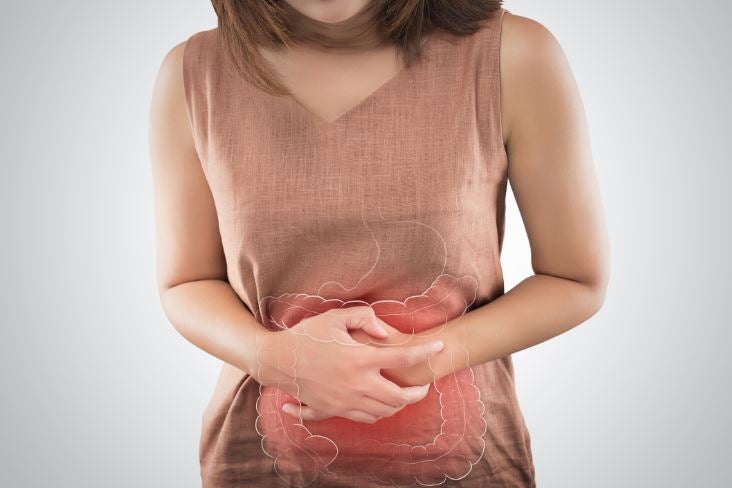Stomach discomfort can strike at any time and can alter your everyday routine in your home and work life. Constipation, heart burn and several trips to the bathroom during the day can attest to that. It’s important to stay on tract, digestive tract that is. Your digestive tract, also referred to as your digestive system, plays an important role in your body. A series of major organs are simultaneously working together to break down the food you consume, absorb and move necessary nutrients throughout the body and then eliminate waste. Your digestive system is in sync from the moment you chew, until you hit the bathroom. Thank your digestive system by treating it well and managing your gut health on a daily basis. Here are a few tips:
Cut out sugar
Want great gut health? Cutting out sugar from your diet can help. Every day, Americans are averaging about 20 teaspoons of added sugars to their diet. Unfortunately, refined sugars break down the lining in your gut and promote the growth of bad bacteria. The imbalance of gut flora can cause inflammation, constipation and a series of other negative health effects. Eliminate your chances of a “sugarache” by staying clear of sugary beverages and sweets.
De-stress
Did you know that you can stress yourself to stomach pain? Stress can affect different parts of the body, including your stomach. When you’re stressed, your central nervous system decreases its blood flow, causing your digestive tract to slow down or stop completely. Stress also reduces your good bacteria (gut flora). Every person responds to stress differently and it’s your job to find out what works best for you during those stressful moments. Taking a walk, meditating, unplugging from technology, spending time outdoors or reading a book are a few suggestions.
Load up on probiotics and prebiotics
A healthy dose of probiotics and prebiotics can do wonders for your gut. Probiotics are good bacteria and can be found in many fermented foods and supplements. Yogurt is an excellent source of probiotics. Prebiotics contain non-digestible carbohydrates that feed probiotics and have been linked to a reduction in fat storage and irritable bowel syndrome. Prebiotics are found in whole grains, garlic, honey, onions, asparagus, bananas, and artichokes.
Take small bites
By taking mom’s advice and chewing your food slowly, you are actually making it easier on your digestive system. Your digestive system begins in your mouth, as the combination of saliva and chewing breaks down your food. The crushed up food travels to the esophagus and meets in the stomach where stomach acid and enzymes continue the process of breaking down food. Ultimately, the smaller the bite, the easier it is for your food to mix with your stomach acid. By taking small bites, you are helping food move smoothly through the digestive tract during this energy-consuming process that the body endures.
Stay hydrated
Water keeps everything flowing (literally). Water aids digestion as it helps break down nutrients from food. Frequent water drinkers also experience less bloat and constipation.
Digestive issues can sometimes be a sign of something more serious, like gastroesophageal reflux disease (GERD), gallstones or diverticulitis, so it’s important to talk to your doctor about your symptoms. If you are experiencing digestive issues and would like to schedule an appointment with a Lovelace gastroenterologist, please call 505-727-2727.

